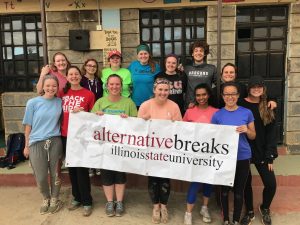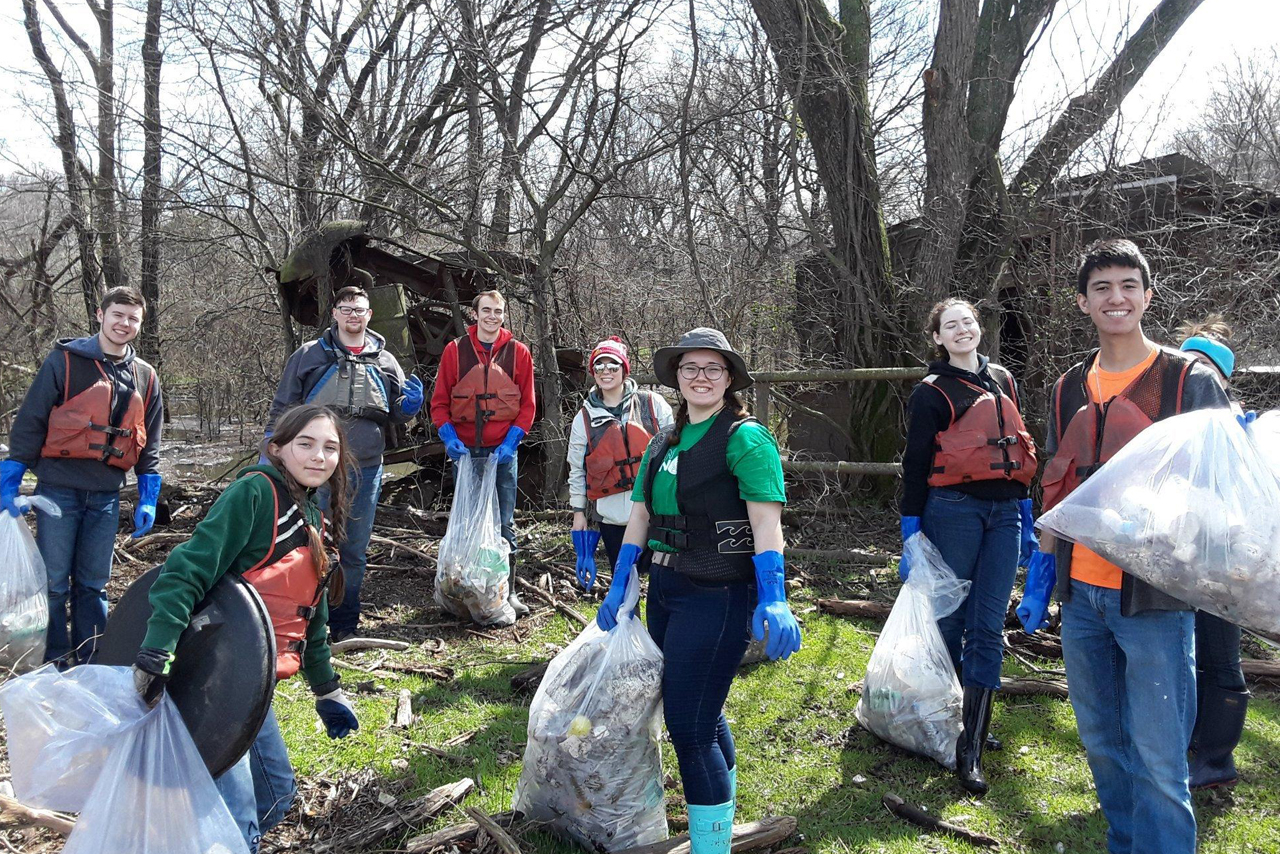Annie Weaver, coordinator of student volunteer opportunities at the Center for Community Engagement and Service Learning, was saddened when she heard about students who couldn’t participate in the Alternative Breaks program because of the cost involved.
“I saw students who really wanted the experience and wanted to serve, but they just couldn’t afford to go on a trip,” Weaver said. “Others would occasionally drop out of a service trip when they realized their families couldn’t help support them.”
This summer, Weaver decided to do something about it.
Weaver, who oversees the Alternative Breaks program at Illinois State, proposed a new fee structure for the program. Her proposal was sent to the Division of Student Affairs where it was quickly accepted. The new fee structure provides access for students who otherwise might not be able to participate in such impactful service-learning experiences and is being implemented this year.
“It is my hope that through the implementation of this new fee structure, more students will be able to participate in this outstanding program.” Levester Johnson
Through the new structure, a student’s fees for a trip are based on their Expected Family Contribution (EFC) as determined through the Free Application for Federal Student Aid (FAFSA) process. At a maximum, fees will be similar to those paid by students last year. This year, costs will decrease as a student’s EFC lowers.
It’s important to note that fees will not increase for any student. Weaver explained, “We’re not offsetting costs by charging anyone anymore. We’re simply changing the structure so that everyone has an opportunity to go on an Alternative Break trip.”
Levester Johnson, vice president for student affairs, participated in an Alternative Break trip located along the Mississippi River. When asked about his experience, Johnson said, “The trip and time spent with our students while impacting the community was incredibly rewarding. The Division of Student Affairs takes seriously our value of civic engagement and providing access to opportunities such as these for all students. It is my hope that through the implementation of this new fee structure, more students will be able to participate in this outstanding program.”
Illinois State University senior Oliv Er Phreykz, student director for Alternative Breaks, is encouraged by the increased accessibility the new fee structure offers. “Diversity and inclusion, two of ISU’s values, are especially important to Alternative Breaks because our organization is focused on working with a variety of communities with people from all walks of life,” Phreykz explained. “We will be best suited to work with diverse communities if we ourselves are composed of diverse leadership and participants. The new fee structure will make Alternative Breaks more accessible to students, especially those who were financially constrained.”
The program will also continue to offer partial fee waivers. Any student can apply for a waiver, regardless of the cost of the trip or EFC. Waivers are funded by donations to the Alternative Breaks Support Fund.

Redbirds pose in front of Living Positive Kenya in May 2019. The group spent nearly 2 weeks serving at the organization in Kenya.
The Alternative Breaks program gives students the opportunity to impact a community by participating in service trips. Students learn about a social issue, spend a week or more doing service work, and then reflect upon both the social issue and their individual impact. The experience is often life-changing for the participants.
“If we truly want all of our students to have these high-impact experiences,” Weaver explained, “then we needed to change things so that all students could afford it. Eliminating a cost barrier is a step in the right direction.”
More information on the Alternative Breaks program, including the new cost structure, is available on the Center for Community Engagement and Service Learning website.
Applications are now being accepted for domestic Alternative Spring Break trips and the international Alternative Summer Break trip to Kenya. The deadline to apply is October 21, but trips often fill quickly, so early application is encouraged.

